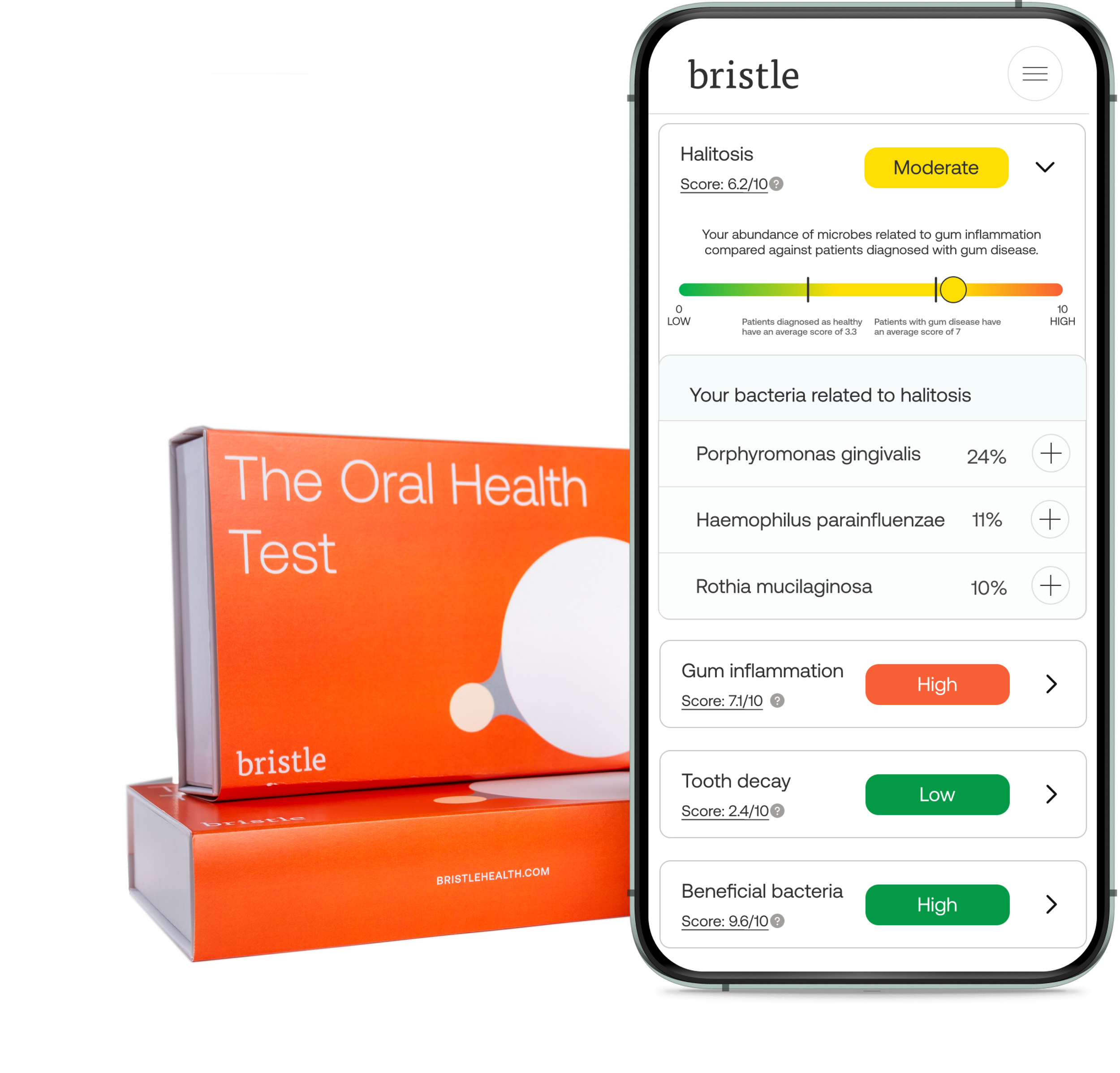Unfriendly bacteria living in your mouth not only influence tooth and gum disease, and bad breath. These organisms may hold the key to obesity, diabetes, heart disease, erectile dysfunction, Alzheimer’s, cancer, autoimmunity, and more!
It is both amazing and common sense that the function of one part of the body effects every other part of the body. The importance of the gastrointestinal flora has garnered increasing interest, even from conventional medicine, in recent years.
A still generally neglected influence on health is the oral flora – the good and bad organisms that live in human mouths. Testing levels of these “bugs” is a potential goldmine of data that can lead to interventions to beneficially alter this powerful influence on oral and systemic health.
Bristle Labs measures the DNA of 700 different bacteria and yeast from a saliva specimen. The average individual has over 100 different organisms living in the mouth. The report that is produced lists levels of organisms grouped into different health concerns such as Bad Breath and Gut Inflammation. Treatment considerations based on the findings are provided.
As I wrote about in, “Want your penis to work? Try flossing your teeth…But skip the mouthwash!“, treatment of periodontal disease resulted in improvement of patients suffering with erectile dysfunction! This is likely due to the systemic effect (in this case, blood vessel effect) of oral infection and inflammation.
The oral bacteria can be the cause of elevated blood cholesterol. What’s more, these organisms can increase levels of particularly dangerous small-dense LDL cholesterol particles.
A study found 13 out of 13 diseased human arteries examined had DNA of streptococcus mutans, a cavity-causing bacteria that lives in the mouth. It possibly passed from the mouth through unhealthy “leaky gums” into systemic circulation, lodging in arteries. The bacteria may be a contributor if not the foundational cause of the inflammatory arterial plaque of atherosclerosis. Likewise, another study of 42 patients with cardiovascular disease found the presence of another oral bacteria, porphyromonas gingivalis, in coronary arteries of all 42 patients.
Porphyromonas gingivalis is a particularly concerning bacterium. It has not only been associated with periodontal disease and cardiovascular disease but also with rheumatoid arthritis, diabetes, pancreatic cancer, colon cancer, oral squamous cell carcinoma, liver disease, and neurodegenerative diseases.
The Bristle Labs test measures levels of nitrate reducing bacteria. These “good bacteria” play a role in the creation of the critical biochemical, nitric oxide. (See Want your penis to work – again? (part 2): A Holistic Approach to Erectile Dysfunction…And Vascular Health). If you have low levels of these organisms, you can eat specific foods to increase their growth and thereby the production of nitric oxide. Conventional antiseptic mouthwash, antibiotics, and fluoride damage these beneficial bacteria.
Whatever your health concern, the balance of your oral flora may be playing a role – possibly a big one.
A saliva specimen can provide clues to solving chronic health conditions.
Inflammation, insulin resistance, and declining nitric oxide are drivers of unwellness, degenerative disease, and biological aging. The oral flora plays a pivotal role in these processes and more. Take the Bristle Labs Oral Health Test. Always use this link to get discounted pricing: Bristle Labs.




